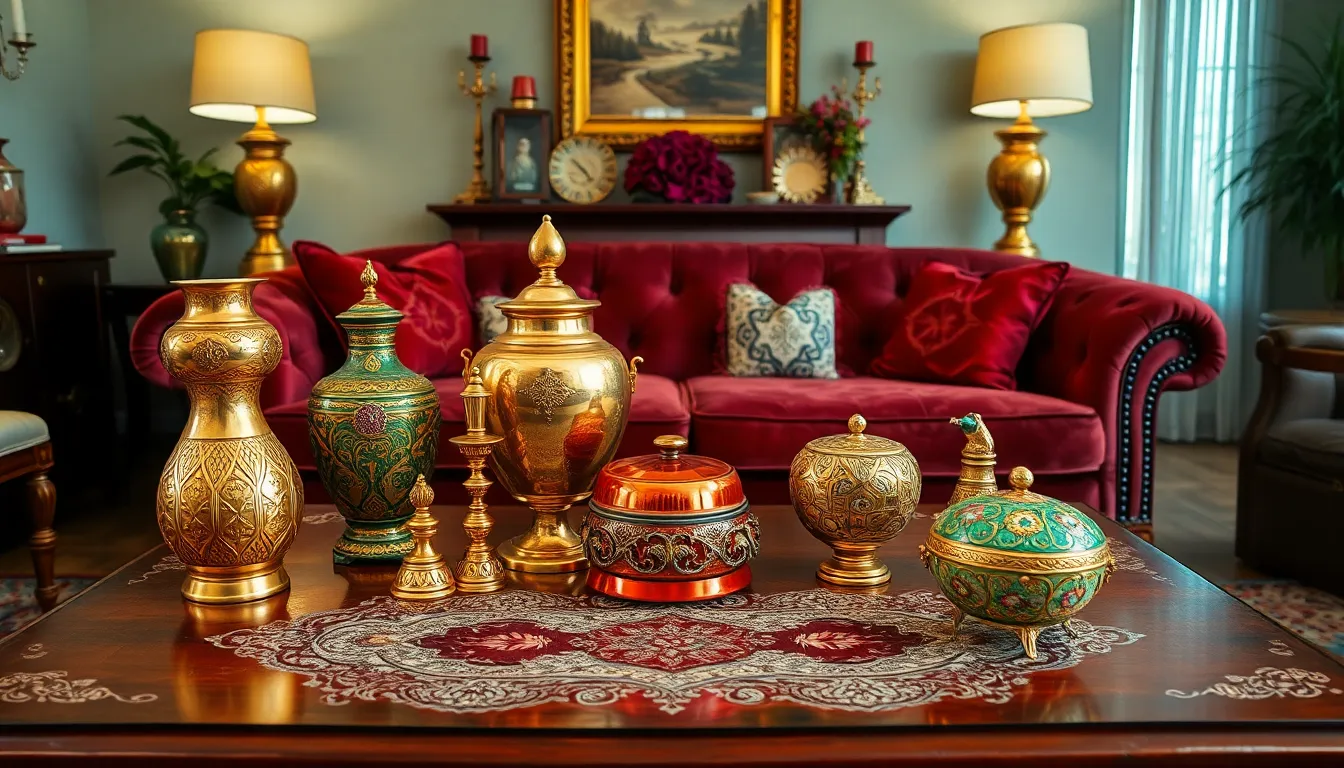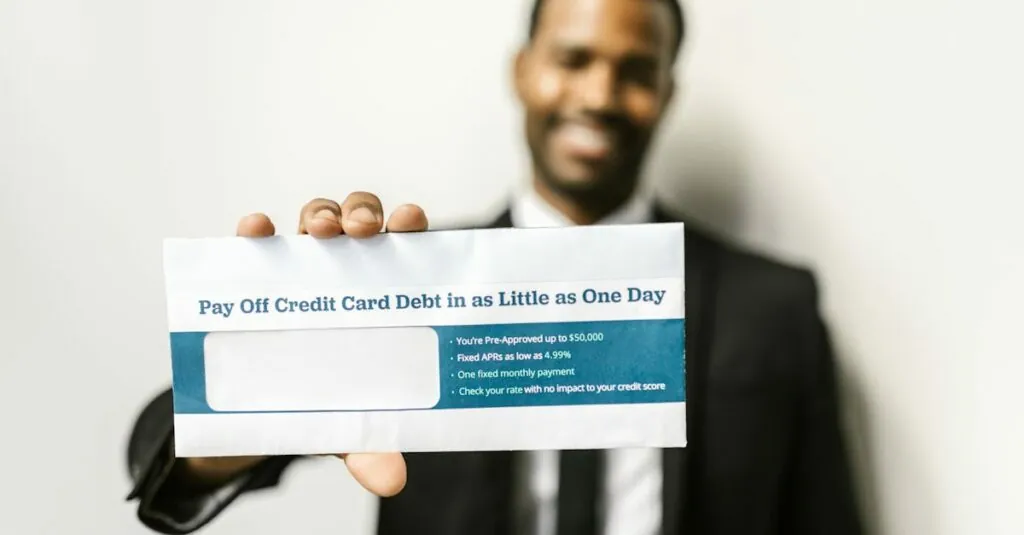When it comes to adjectives, the letter “O” might not be the first letter that springs to mind. Yet, it holds a treasure trove of vibrant and quirky descriptors just waiting to spice up your vocabulary. From “obnoxious” to “opulent,” these words can add flair to any conversation or piece of writing. Who wouldn’t want to impress their friends with a well-placed “ostentatious” remark?
Table of Contents
ToggleOverview of Adjectives
Adjectives serve as essential components in language, providing additional detail to nouns and creating vivid imagery. Each adjective enhances expression and clarity by describing qualities or states. Many adjectives starting with “O” create strong impressions, such as “obnoxious,” which conveys something distasteful or offensive.
“Opulent,” another example, refers to great wealth or luxuriousness. This adjective suggests richness, often used to describe lavish interiors or extravagant lifestyles. Additionally, “ostentatious” denotes a tendency to impress others through flashy display. Such a word captures the essence of extravagance and can label behaviors or appearances.
Incorporating these adjectives into daily conversation adds color and sophistication. For instance, using “obnoxious” to describe a rude person instantly conveys strong feelings. Similarly, saying an event was “opulent” implies that it was richly adorned and luxurious. Such precise adjectives help paint a clearer picture for the audience.
Familiarity with these “O” adjectives fosters better communication skills. Selecting appropriate words contributes to expressing ideas more effectively. Emphasis on variety within vocabulary keeps discussions engaging and dynamic. Thus, individuals can better express their thoughts and feelings by understanding and utilizing specific adjectives.
Exploring the richness of adjectives, especially those beginning with “O,” enhances one’s linguistic precision and ability. Each term holds power in conveying a message, making conversations more compelling.
Types of Adjectives That Start With O

Adjectives beginning with “O” enrich language, illustrating various qualities and quantities. They serve distinct purposes, enhancing communication precision.
Descriptive Adjectives
Descriptive adjectives starting with “O” vividly portray characteristics or traits. Words like “obnoxious” convey strong negative feelings, often relating to behavior that is irritating or offensive. “Opulent” describes extravagant luxury and wealth, commonly associated with lavish architecture or indulgent lifestyles. Another example, “ostentatious,” highlights a tendency to show off, often in a way that seems excessive or gaudy. These adjectives add depth to descriptions, painting clear mental images that engage the listener or reader. Utilizing such words elevates everyday speech or writing, enabling more effective expression.
Quantitative Adjectives
Quantitative adjectives that start with “O” specify amounts or quantities. Terms like “overall” indicate a total or aggregate measure when making assessments, useful in various contexts from business to education. “Occasional” refers to infrequent occurrences, providing a sense of rarity or periodicity. When talking about figures, “one” signifies a singular item or instance, laying a foundation for further comparison. These quantitative descriptors help clarify ideas, lending accuracy to statements and enhancing the listener’s understanding. Incorporating these adjectives fosters concise communication, allowing for clear expression of numerical or situational contexts.
Common Adjectives That Start With O
Several adjectives that start with “O” can enrich vocabulary. These words enhance descriptions, providing clarity and imagery.
Examples and Usage
“Obnoxious” describes behavior that annoys or irritates. For instance, the loud music at the party was obnoxious. “Opulent” conveys a sense of wealth, often seen in phrases like opulent mansions or opulent lifestyles. When referring to extravagant displays, “ostentatious” fits perfectly. For example, one might say the ostentatious decorations were over the top. “Occasional” indicates infrequency, as in occasional gatherings or occasional visits.
Synonyms and Antonyms
“Obnoxious” relates to synonyms like irritating or offensive. Conversely, its antonyms include pleasant or agreeable. “Opulent” connects with lavish or sumptuous, while its antonyms could be modest or simple. The word “ostentatious” has synonyms like showy or extravagant, with antonyms being understated or modest. Lastly, “occasional” parallels rare or infrequent, whereas perpetual or constant serve as antonyms.
Creative Writing Tips with Adjectives
Incorporating adjectives starting with “O” can elevate one’s writing style and provide clarity. Utilize descriptive adjectives like “obnoxious” and “opulent” to evoke strong imagery. Describing a scene with “obnoxious sounds” immediately conveys annoyance, helping readers visualize the atmosphere. Luxury comes alive when using “opulent” to portray a lavish mansion, inviting readers into a world of richness.
Consider employing quantitative adjectives such as “occasional” to convey frequency. Saying “occasional celebrations” informs readers that these events don’t happen often. By using “overall,” individuals can summarize information effectively, making points concise and straightforward.
Engage readers with vivid examples. An “ostentatious display” at a gala captures attention, highlighting extravagance. Contrast this with “occasional gatherings,” allowing for a mix of frequent and rare occasions in the narrative.
Explore synonyms and antonyms to broaden understanding. For “obnoxious,” words like “irritating” work well; oppositely, “pleasant” provides a clear contrast. Using “opulent” alongside “lavish” enhances vocabulary depth, adding sophistication.
Encourage diversity in usage. Various contexts benefit from these adjectives, whether in formal writing or casual conversation. For engaging storytelling, sprinkle “O” adjectives throughout to maintain interest and shape a vivid picture.
Nurturing familiarity with these terms boosts communication effectiveness. Selectivity in choosing adjectives enriches dialogue, elevating the overall quality of exchanges in both speech and writing.
Exploring adjectives that start with “O” opens up a world of expressive possibilities. These words not only enhance vocabulary but also enrich communication by adding depth and clarity. Whether describing a lavish lifestyle with “opulent” or capturing irritation with “obnoxious,” the right adjective can transform mundane descriptions into vivid imagery.
Incorporating these terms into daily conversations and writing can significantly improve one’s linguistic skills. By understanding and utilizing both descriptive and quantitative adjectives, individuals can communicate more effectively, ensuring their thoughts and feelings are conveyed with precision. Embracing the power of “O” adjectives ultimately leads to more engaging and impactful exchanges.






